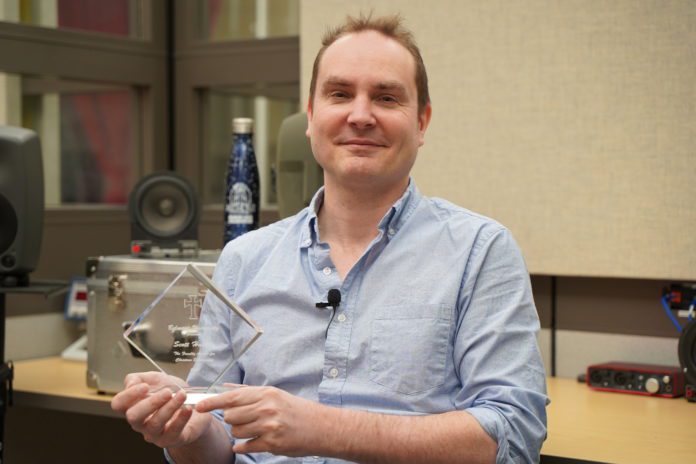Belmont Professor of Physics Dr. Scott H. Hawley is one of the two recipients of the 2022 Faculty Award for Christian Scholarship.
Hawley spent two summers interacting with Christian scholars in a variety of fields on topics that integrated science and the Humanities as well as science and faith at the Scholarship & Christianity in Oxford (UK) center.
His technical research and development work applying Machine Learning (ML) to topics likely to impact his Audio Engineering Technology (AET) students’ future careers led him to concerns about the wider ethical impacts of ML on society, and possible Christian responses to these challenges.
Hawley’s writing on these topics in academic journals and books, as well as popular and theology-centric venues, such as his first place entry in Faith Tech Institutes 2020 Writing Contest, led to invitations to serve as a Founding Member of AIandFaith.org and on the board of AI Theology.
Hawley is an enthusiastic participant in interdisciplinary, campus-wide conversations about data, machine learning, AI, etc., their impacts on each discipline and society as a whole and how Christians can best contribute to human flourishing in these areas. In the 2022-2023 year, he we will serve as one of the Belmont Data Collaborative’s first Faculty Fellows, focused on research, training faculty and serving as a facilitator of conversations campus-wide and beyond.
As an example of such conversations, Hawley gave two invited talks during Spring Break at the Christian Study Center in Gainesville, Florida. The first, “Taming Chaos: Generative Modeling As a Foil to Human Creativity” was given to theologians and artists, building on some work of Belmont’s Dr. Steve Guthrie in the College of Theology and Christian Ministry. The second talk, “Curves and Categories: Machine Learning, AI and the Nature of Classification” serves as a preview of an interdisciplinary one-hour course he will offer in Spring 2023, using materials from a popular-level book he is preparing on the subject.
For more about Hawley’s work and its interdisciplinary connections, see his faculty web page, his blog or his Twitter profile.



